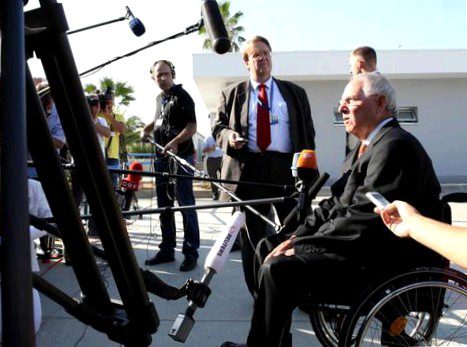Banking supervision divides europe

He referred to the decisions of the EU summit at the end of june, which stipulates that negotiations must be concluded by the end of 2012. German finance minister wolfgang schauble, however, interprets the decisions of the heads of state and government differently. The summit decision only talks about a review of the commission’s proposals by the end of the year. "We have complied with the request, we have already reviewed it"."
The supervisory authority is to be based at the european central bank (ECB) and, in the final stage, will control 6,000 money houses in the 17 euro countries. It is also the prerequisite for ailing institutions to be able to access loans directly from the euro rescue fund. The plans for a banking union, which would include not only banking supervision but also a common deposit guarantee fund, were only presented by the EU commission on wednesday.
Schauble is critical of the pace set by brussel. Expectations should not be raised on the financial markets "which we then have to fall short of," he emphasized in nikosia. Schauble denied that there was a dispute with moscovici over the timetable. It was agreed that a start should be made on 1 january. January if that were possible – "but it won’t be possible," schauble said. "There is no german-french controversy there." Moscovici said there were no tensions, but differences of opinion with schauble.
Eu internal market commissioner michel barnier insists on a quick start for european banking supervision. The EU also wants to prevent that further billions of aid for money houses already strained countries additionally burdened. "The timetable is realistic and necessary," barnier said, and is exactly in line with the summit decision in june.
The EU heads of state and government had agreed on the 29. June decided: "we affirm that it is crucial to break the vicious circle between banks and government bonds. The commission will be in short (…) propose a unified enforcement mechanism. We ask the council (the minister of finance) to review this proposal urgently by the end of 2012." The ECB vice president vitor constancio said the commission’s proposals "fully respect what the summit decided".
In the dispute over the power of the new supervisory authority, barnier stressed that it was not a question of the ECB directly supervising all banks right from the start. But the ECB must have the right to intervene in every financial institution if necessary. A step-by-step plan is in place: first, the central bank is to monitor financial institutions that receive aid, then major banks, and from 2014 onward, all credit institutions.
Thomas silberhorn, spokesman on european policy for the CSU parliamentary group in the german bundestag, told dpa that centralized banking supervision in the eurozone is "neither necessary nor sensible. Small and, above all, nationally or regionally active banks are particularly crisis-resistant and should not be lumped together with the big banks.
A joint deposit guarantee fund also meets with resistance in germany. It is unacceptable that the planned restructuring fund for ailing banks can draw on deposit insurance money, said silberhorn. That was "a brazen grab into the coffers at the expense of solid savers and for the benefit of windy financial jugglers".
Barnier rejected the accusation that he wanted to make german savers pay for banking crises in other countries. "I have never made such a proposal." Existing national funds for safeguarding savings should not be merged.
Even among countries that have not yet adopted the euro, there are concerns about new banking controls for the euro zone. States fear that the common internal market of all 27 EU countries could be divided for some 500 million people.



